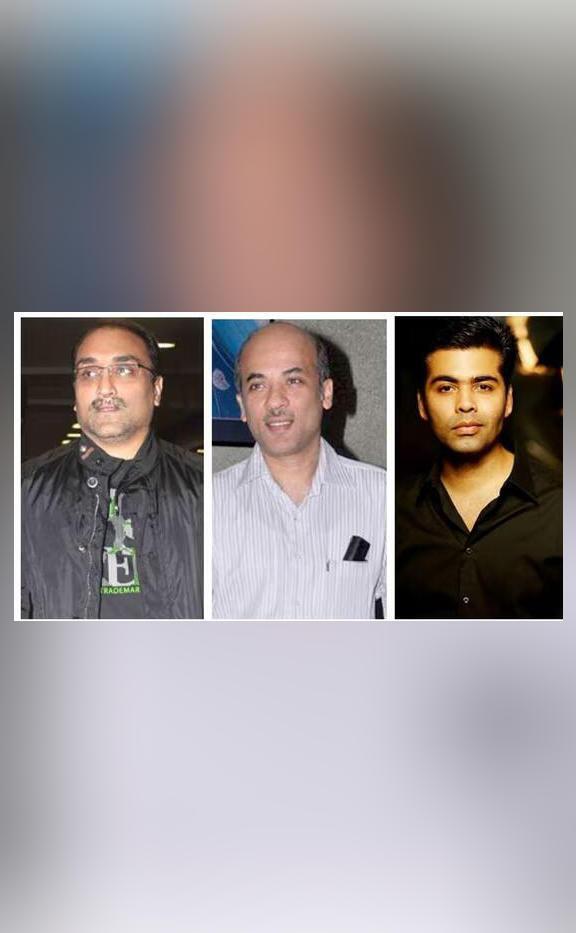
Karan, Aditya & I Born with Golden Spoons, Sell Fairytale: Sooraj
The Indian film industry, often referred to as Bollywood, has been producing some of the most iconic and romantic films for decades. The 90s, in particular, were a golden era for Hindi cinema, with films like “Hum Aapke Hain Koun..!” (1994), “Dilwale Dulhania Le Jayenge” (1995), and “Hum Saath-Saath Hain” (1999) dominating the box office. One of the key factors behind the success of these films was the way they presented a perfect blend of romance, drama, and music, showcasing a fairytale-like world that audiences adored.
Recently, acclaimed filmmaker Sooraj Barjatya spoke about the influence of his own privileged upbringing on his films. In an interview, he revealed that he, along with Karan Johar and Aditya Chopra, were “born with golden spoons” and have never experienced the hardships of life. “We have always travelled in cars,” he said, “We showed the kind of world that was a fairytale, and the 90s were an era when the audience wanted to see fairytales.”
Barjatya’s statement raises important questions about the representation of reality in Bollywood films. While his statement might come across as arrogant to some, it’s essential to understand the context in which he grew up and the kind of films he was making during that time.
Born into a family of filmmakers, Sooraj Barjatya comes from a long line of successful producers and directors. His grandfather, Rajkumar Barjatya, was a prominent filmmaker in the 1960s and 1970s, and his father, Mahesh Barjatya, has produced some of the most successful films in Bollywood. Sooraj’s own entry into the film industry was a foregone conclusion, and he made his debut as a director with the hit film “Maine Pyar Kiya” (1989).
Karan Johar, another prominent filmmaker of the 90s, comes from a similar background. His father, Yash Johar, was a successful producer who founded Dharma Productions, one of the most prominent film production companies in Bollywood. Karan Johar’s debut film, “Kuch Kuch Hota Hai” (1998), was a massive hit and set the tone for his future films.
Aditya Chopra, the son of legendary filmmaker Yash Chopra, also comes from a family of filmmakers. His father’s production company, Yash Raj Films, has produced some of the most successful films in Bollywood, including “Dilwale Dulhania Le Jayenge” and “Veer-Zaara”.
The fairytale-like world that Sooraj Barjatya and his contemporaries presented on screen was a reflection of their own privileged upbringing. Growing up in a world of luxury and comfort, they were exposed to the best of everything, from the finest food to the most exclusive parties. This privileged upbringing influenced their perspective on life and shaped the kind of films they made.
In an era when the Indian economy was booming, and the country was experiencing unprecedented growth, people were looking for escapism. They wanted to forget about their daily struggles and immerse themselves in a world of romance, drama, and music. Barjatya’s films, including “Hum Aapke Hain Koun..!” and “Hum Saath-Saath Hain”, offered exactly that – a fairytale-like world where love conquers all, and happiness is just around the corner.
While Barjatya’s statement about being “born with golden spoons” might come across as arrogant to some, it’s essential to understand the context in which he grew up. Growing up in a world of privilege has its advantages and disadvantages, and Barjatya’s films reflect the kind of world he knew and loved.
In conclusion, Sooraj Barjatya’s statement about being “born with golden spoons” and selling a fairytale is a reflection of the kind of world he grew up in. The 90s were an era of unprecedented growth and prosperity in India, and people were looking for escapism. Barjatya’s films, along with those of Karan Johar and Aditya Chopra, offered exactly that – a fairytale-like world where love conquers all, and happiness is just around the corner.






